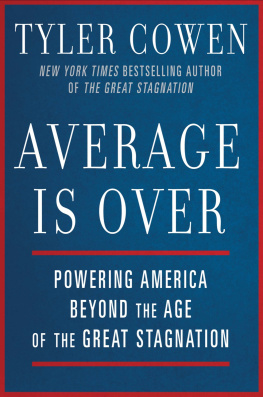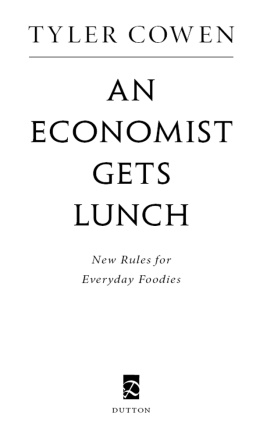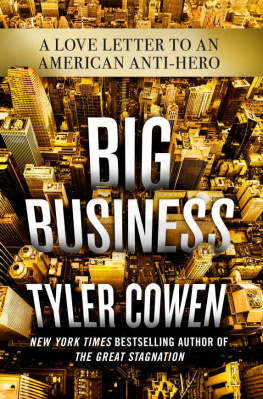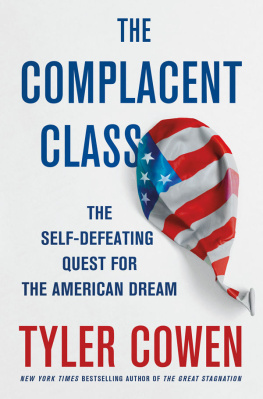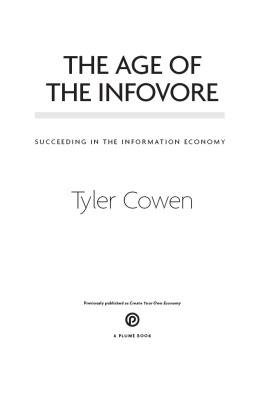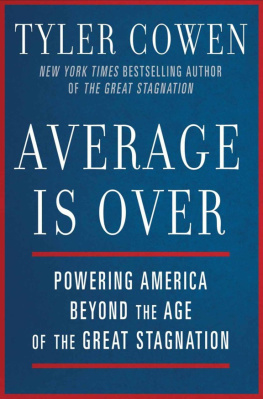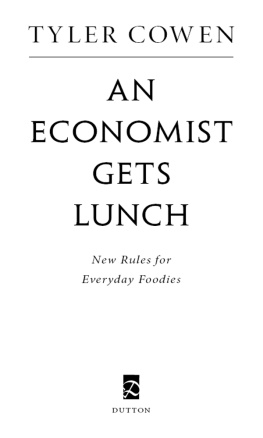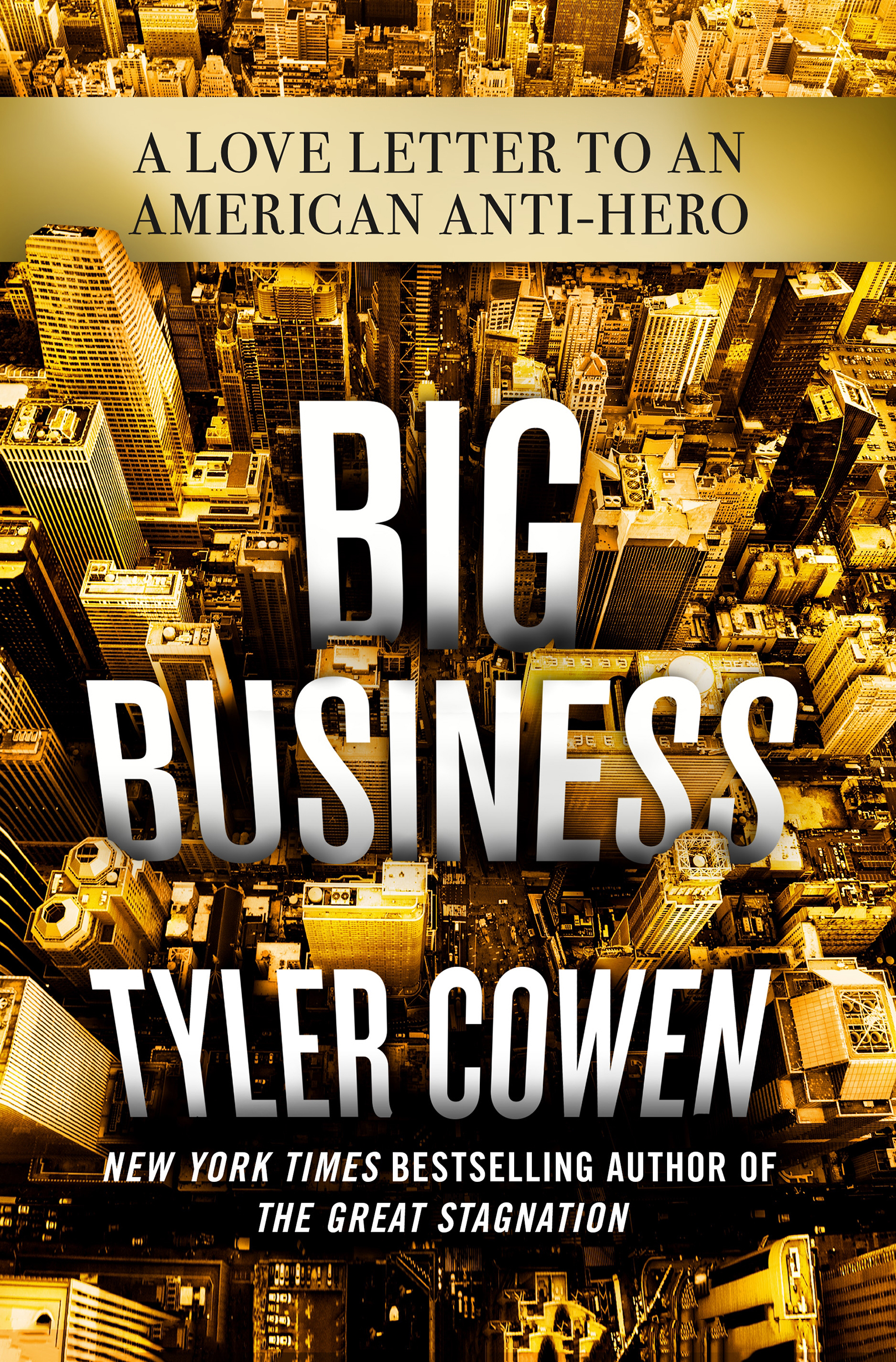The author and publisher have provided this e-book to you for your personal use only. You may not make this e-book publicly available in any way. Copyright infringement is against the law. If you believe the copy of this e-book you are reading infringes on the authors copyright, please notify the publisher at: us.macmillanusa.com/piracy.
We live in an age when the reputation of business is under siege. Among Democrats, for instance, the word socialism now polls better than does capitalism. But Republicans, while they pay greater lip service to some business ideals, are not in practice much better. Many of them have quite readily followed President Donald Trump into his attacks on free trade, immigration, outsourcing, and the American media (which is labeled the enemy of the people)all fundamentally anti-business stances.
Business, quite simply, has become underrated, and thus I am writing a contrarian book that ought not to be contrarian at all. All of the criticisms one might mount against the corporate formsome of which are validpale in contrast to two straightforward and indeed essential virtues. First, business makes most of the stuff we enjoy and consume. Second, business is what gives most of us jobs. The two words that follow most immediately from the world of business are prosperity and opportunity.
Without business we would not have:
Ships, trains, and cars
Electricity, lighting, and heating equipment
Most of our food supply
Most of our lifesaving pharmaceuticals
Clothes for our children
Our telephones and smartphones
The books we love to read
The ability to access, more or less immediately, so much of the worlds online information
And lets not forget your paycheck. Meeting payroll, to invoke a now old-fashioned phrase, is nothing less than a heroic act. Someone or some group put in the hard work and thought up the innovations required to create a company from scratchI know its easy enough to take this for granted if you arent the one who did it. On top of the paycheck, jobs are among our biggest sources of pride and a significant way to meet friends and establish social networks.
By the way, when I use the word business I mean simply a commercial or sometimes an industrial enterprise, to pull a quick definition from Merriam-Webster. Ill use the more legally precise word corporation interchangeably, even though the two concepts are not strictly the same. A kid with a lemonade stand is a business but not a corporation. That said, for the purposes of this book I will be considering institutions that are large enough and formal enough for the two words to serve as effective synonyms. I fully understand that the word business often sounds better to people than corporation, so if I sometimes use the latter it is also to shock some of my readers out of an implicit anti-corporate complacency.
THE PARTICULAR VIRTUES OF AMERICAN BUSINESS
We must take a moment to appreciate the particular character of American business. By global standards, its overall performance is remarkably impressive. Stanford economist Nicholas Bloom and a group of co-authors studied and compared management practices in some of the major economies, including the United States. Their survey assessed how well a workplace uses incentives, the quality of performance measures and reviews, whether top management aims at long-term goals, whether top creators are well rewarded, and whether the firm attracts and retains quality employees, among other relevant metrics. These assessments were backed up by real-world results too, as the responses correlated with actual numbers on firm productivity, size, profitability, sales growth, market value, and firm survival.
So at the end of all of these measurements of management quality, which country comes out on top? The United States is a clear first, a testament to the scope and quality of business achievement in this country, the result of the efforts of both business leaders and workers. Not coincidentally, America is the global innovation leader in a wide array of areas.
Management really matters. Lets say we take two American plants producing comparable wares, but one of those plants is in the 90th percentile in terms of productivity, while the other is in the 10th percentile. The former plant will have a productivity level four times higher than the latter plant, due to superior management practices. It has been estimated that Chinese firms could increase their productivity by 30 to 50 percent and Indian firms could do so by 40 to 60 percent merely by bringing the quality of their management practices up to American levels.
And what might such improvements from the Chinese and Indians mean? Americas relatively high level of workplace trust allows its companies to run with much greater efficiency. Trust allows businesses to decentralize decisions, so top managers do not become bottlenecks holding up progress. With trust, delegation to subordinates is much easier and more effective, and so businesses based on trust can scale more rapidly and have greater flexibility. In an environment with relatively high levels of trust, workers are more likely to see that rewards are based on productive contributions more than on cronyism. In these regards, the virtues of business productivity are human virtues as well, and both show up in record high levels of business output and also relatively pleasurable jobs. As human beings, we enjoy being trusted and in turn being trustworthy. So often we see that business virtues correlate with social virtues.
There is another reason American business has done well: the American economy is relatively effective, compared with other countries, in weeding out the worst firms through competitive pressures. The very worst firms in the United States just arent that bad compared with the best firms, whereas for other countries the gap is typically much larger. This is another way of saying that Americans do the creative destruction part of capitalismthat is, the process by which people vote with their wallets as to which is the best restaurant, car, or suitcase, and the losers go out of businessbetter than the rest of the world. The problem with protectionism, which at first glance looks appealing because it claims to protect our workers, is that it becomes much harder for more productive businesses to displace the less productive ones, a fundamental source of economic progress.
Compared with other major regions, the United States also does the best job of funneling labor and resources into the best-managed firms. That is, successful American businesses can grow and extend their reach. For instance, an increase in management quality of one standard deviation (a statistical measure of difference) means, for an American firm, 268 extra employees on average. A comparable increase in management quality in southern Europe is associated with only 68 more employees in the firm; similar results are found after adjusting for differences in firm size. In other words, America is especially good at matching talent to talent and getting the most out of its biggest successes.
LESS POLARIZED AND MORE VIRTUOUS THAN GOVERNMENT
We can all admit that we are a nation sorely in need of virtue, specifically in our political realm. The growing polarization of todays politics has made our government at best hopelessly sclerotic and at worst prone to unpredictable lurches. This polarization has also spurred out-of-control political correctness and censorship, rampant racism and injustice, new waves of violent marches and shootings, and an array of indictments and corruption charges. Many features of contemporary America are wonderful, including the high level of trust in the corporate sector, but the weirdness in our government has been rising.



